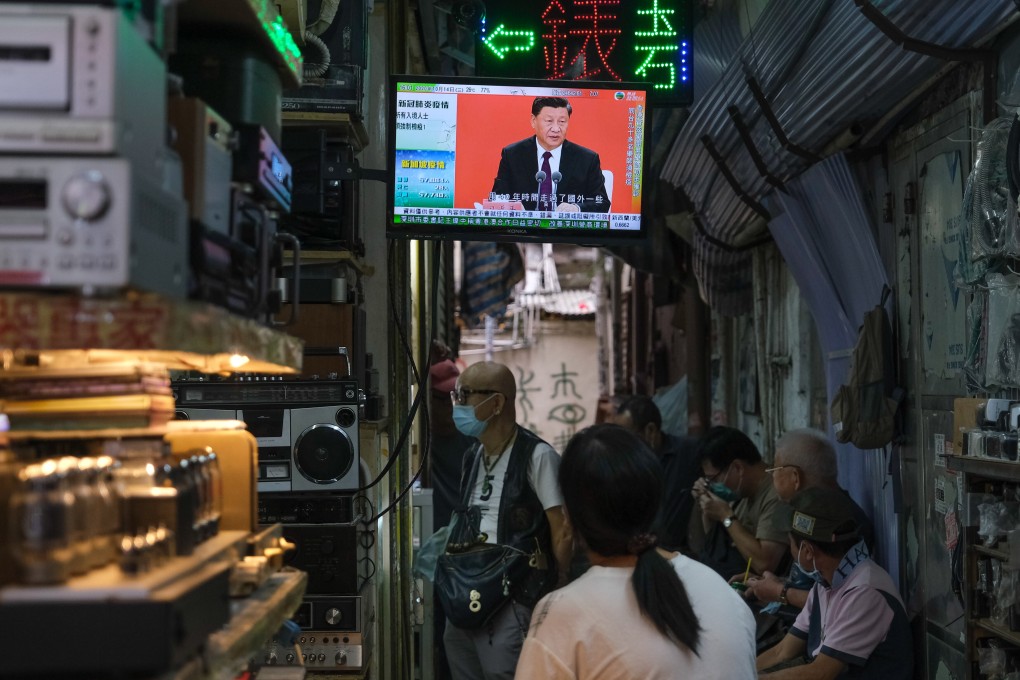Tencent’s record high props up Hang Seng Index as Xi Jinping’s Shenzhen speech fails to add fuel to China’s stock market rally
- China’s benchmark stock indexes in Shanghai and Shenzhen fell, while the main gauge in Hong Kong was little changed after Xi Jinping’s keynote speech
- Tencent Holdings, Shenzhen’s hometown champion, rose 3 per cent to a record, propping up Hong Kong’s Hang Seng Index and the China Enterprises Index

President Xi Jinping’s keynote address in Shenzhen failed to fuel China’s stock rally, leaving the market short of a five-year high, as traders’ expectations were dashed by the lack of policy details from his speech. Shenzhen’s hometown champion Tencent Holdings rose to a record high, keeping key indices in Hong Kong in positive territory.
Shanghai’s Composite Index fell by 0.6 per cent while the benchmark on the Shenzhen exchange fell by the same percentage, and the CSI 300 index that tracks both markets fell 0.7 per cent. The three gauges were in negative territory throughout Xi’s nearly hour-long speech in Shenzhen.
Shenzhen will continue its role as a pioneer in China’s economic reforms, being exposed to more autonomy and favourable policies that will power further opening-up and innovation, the Chinese president said.